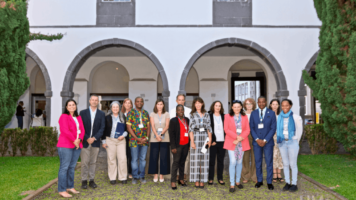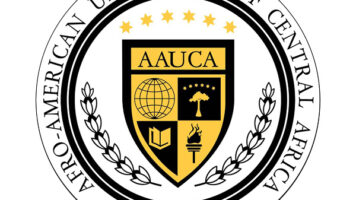The National University of Equatorial Guinea (UNGE), based in Malabo, is a public institution of higher education founded in 1995 and currently has an enrollment of 7,662 students (2022-2023).
The UNGE is a recent and modern institution that houses a variety of degrees in different scientific areas, such as literature and humanities, tourism, social sciences, health sciences, environmental sciences or the different engineering, distributed in its various faculties (12) located on the Malabo, Bata and Mongomó campus.
Our engineering degrees include study programs related to the Oil and Gas industry, such as: petroleum technology, mechanics, electricity, cold and air conditioning, as well as petroleum geology, among others. To achieve this, UNGE works closely with oil companies, such as Marathon Oil , Exxon Mobil and Schlmberger; in addition to state institutions such as GEPETROL and SONAGAS, among others. Studies in the fields of agronomy, agri-food and fishing also stand out.
Currently, teaching is ensured by a heterogeneous team of teachers (967). The percentage of doctoral professors is quite small, which forces the UNGE to seek support to implement continuous and massive training and training policies, to guarantee the quality of teaching. This is one of the main difficulties that this university faces today, with the permission of the financial and technological weaknesses that characterize it.
The internationalization process of UNGE began a few years after its founding, with the signing of a cooperation agreement with the University of Alcalá de Henares (Spain, 1997), during the rectorship of Doctor Federico Edjóo Ovono. Currently, this international cooperation network has increased considerably, through agreements signed with universities and research centers in many parts of the world (Spain, France, United States, Russia, China, Portugal, Italy, Latin America, Africa), in addition to being a member of university networks such as the AUF, CAMES and UNWAM.
Since 2012, UNGE has been integrated into the CEMAC Space for Higher Education, which brings together all universities in the Central African subregion. The educational model applicable in this space is the LMD System (Bachelor, Master and Doctorate), based on transferable academic credits (STC), similar to the European Bologna Plan.
Among the extension courses, we have those that are dedicated to the teaching of modern languages. Highlights include programs such as the UNGE Confucius Institute (financed with the support of the Chinese government), ELP (for teaching English), the UNGE Camoes Institute (in collaboration with the Camoes Institute of Portugal) and the Spanish and French courses such as foreign language.
Web site: https://ungecampus.com/
Social networks:


